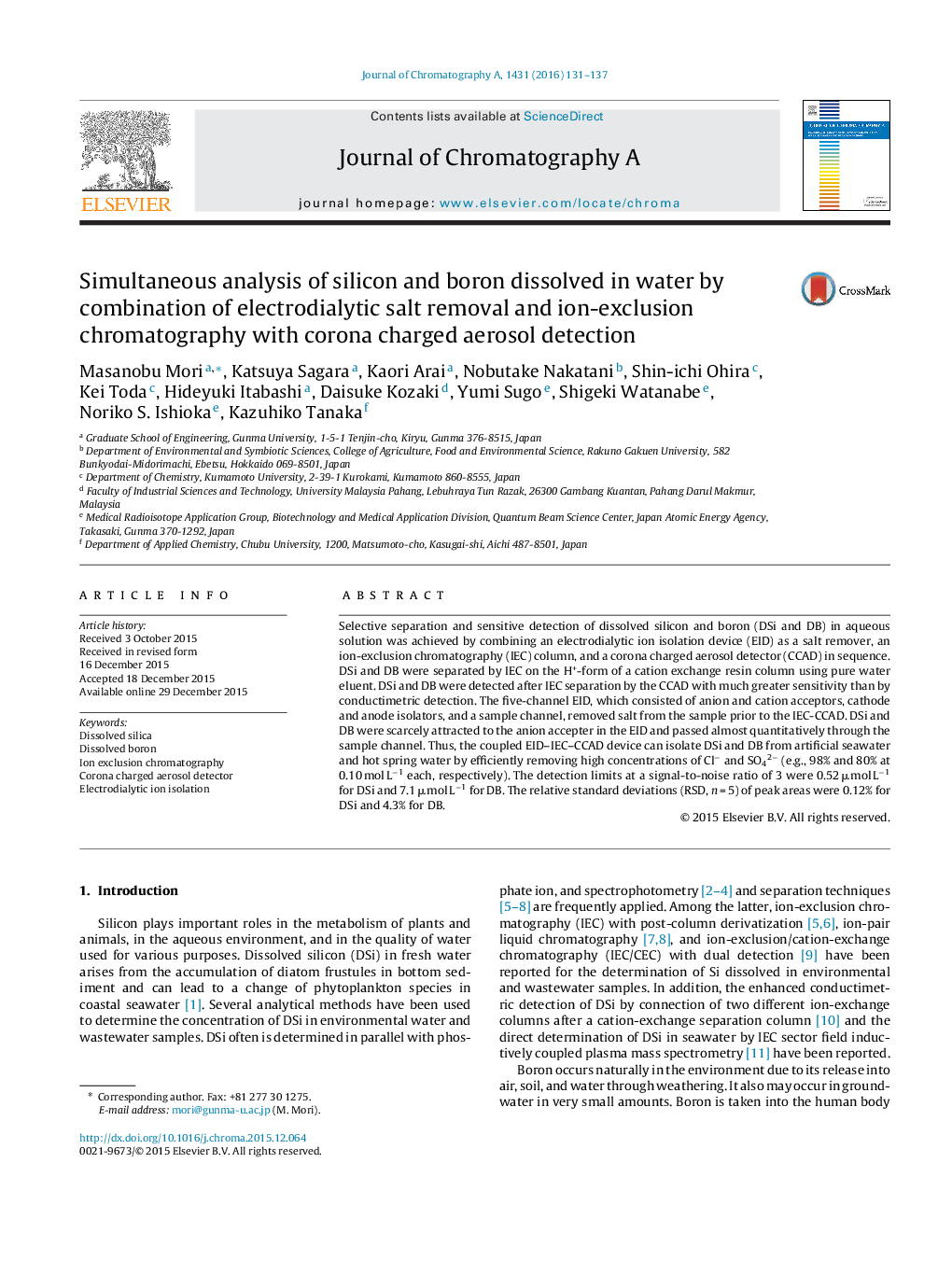| Article ID | Journal | Published Year | Pages | File Type |
|---|---|---|---|---|
| 7610373 | Journal of Chromatography A | 2016 | 7 Pages |
Abstract
Selective separation and sensitive detection of dissolved silicon and boron (DSi and DB) in aqueous solution was achieved by combining an electrodialytic ion isolation device (EID) as a salt remover, an ion-exclusion chromatography (IEC) column, and a corona charged aerosol detector (CCAD) in sequence. DSi and DB were separated by IEC on the H+-form of a cation exchange resin column using pure water eluent. DSi and DB were detected after IEC separation by the CCAD with much greater sensitivity than by conductimetric detection. The five-channel EID, which consisted of anion and cation acceptors, cathode and anode isolators, and a sample channel, removed salt from the sample prior to the IEC-CCAD. DSi and DB were scarcely attracted to the anion accepter in the EID and passed almost quantitatively through the sample channel. Thus, the coupled EID-IEC-CCAD device can isolate DSi and DB from artificial seawater and hot spring water by efficiently removing high concentrations of Clâ and SO42â (e.g., 98% and 80% at 0.10 mol Lâ1 each, respectively). The detection limits at a signal-to-noise ratio of 3 were 0.52 μmol Lâ1 for DSi and 7.1 μmol Lâ1 for DB. The relative standard deviations (RSD, n = 5) of peak areas were 0.12% for DSi and 4.3% for DB.
Related Topics
Physical Sciences and Engineering
Chemistry
Analytical Chemistry
Authors
Masanobu Mori, Katsuya Sagara, Kaori Arai, Nobutake Nakatani, Shin-ichi Ohira, Kei Toda, Hideyuki Itabashi, Daisuke Kozaki, Yumi Sugo, Shigeki Watanabe, Noriko S. Ishioka, Kazuhiko Tanaka,
